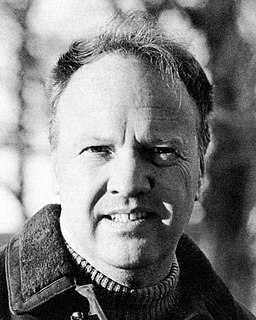A Quote by John Milton
He who would not be frustrate of his hope to write well hereafter in laudable things ought himself to be a true poem.
Related Quotes
Once in his life, a man ought to concentrate his mind upon the remembered earth, I believe. He ought to give himself up to a particular landscape in his experience, to look at it from as many angles as he can, to wonder about it, to dwell upon it. He ought to imagine that he touches it with his hands at every season and listens to the sounds that are made upon it. He ought to imagine the creatures there and all the faintest motions of the wind. He ought to recollect the glare of noon and all the colors of the dawn and dusk.
If a man has no worries about himself at all for the sake of love toward God and the working of good deeds, knowing that God is taking care of him, this is a true and wise hope. But if a man takes care of his own business and turns to God in prayer only when misfortunes come upon him which are beyond his power, and then he begins to hope in God, such a hope is vain and false. A true hope seeks only the Kingdom of God... the heart can have no peace until it obtains such a hope. This hope pacifies the heart and produces joy within it.
The cause of all the blunders committed by man arises from this excessive self-love. For the lover is blinded by the object loved; so that he passes a wrong judgment on what is just, good and beautiful, thinking that he ought always to honor what belongs to himself in preference to truth. For he who intends to be a great man ought to love neither himself nor his own things, but only what is just, whether it happens to be done by himself, or by another.
Well, well, so you aren't going to be a maidservant this time?" said Pippi, stroking his back. "Oh, that was a lie, that's true," she continued. "But still, if it's true, how can it be a lie?" she argued. "You wait and see, it's going to turn out he was a maidservant in Arabie after all, and if that's the case, I know who's making the meatballs at our house hereafter!
There is no hope for the world unless and until we formulate, accept and state publicly a true moral code of individualism, based on man's inalienable right to live for himself. Neither to hurt nor to serve his brothers, but to be independent of them in his function and in his motive. Neither to sacrifice them for himself nor to sacrifice himself for them.
Each man's private conscience ought to be a nice little self-registering thermometer: he ought to carry his moral code incorruptibly and explicitly within himself, and not care what the world thinks. The mass of human beings, however, are not made that way; and many people have been saved from crime or sin by the simple dislike of doing things they would not like to confess.






































